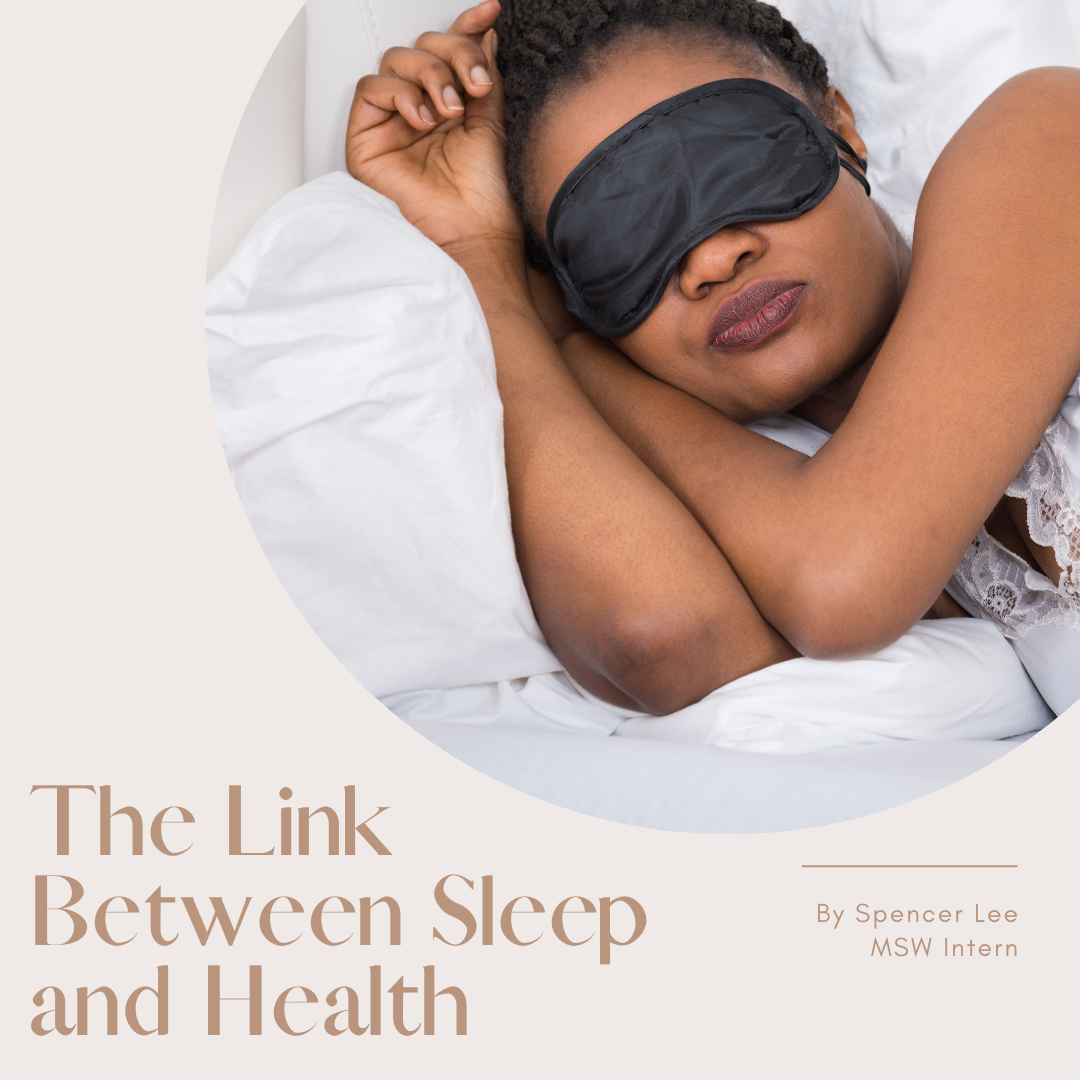The Link Between Sleep and Health
By Spencer Lee, Intern
Sleep hygiene is an important part of our lives that can often fall by the wayside. Good sleep habits are important for everyone’s health, but particularly so for those living with a psychiatric illness. Anywhere from 10% to 18% of the adult population in the U.S. experiences chronic sleep problems. Adults living with mental illness are a whopping 50% to 80% more likely to be affected with chronic sleep issues. Poor sleep quantity and quality have been shown to affect us more than we may know.
For many people struggling with their physical and mental health, it may seem like sleep problems are a symptom of those struggles when they might actually be the cause. A lack of adequate sleep has both short and long-term effects. In the short term, our mood, judgment, and ability to learn and retain information are negatively impacted. In the long term, lack of quality sleep can lead to obesity, mood disorders, a weaker immune system, diabetes, cardiovascular disease, even a decreased life expectancy. Studies with both adults and children suggest that poor sleep may even heighten one’s risk, or directly contribute to, the development of some psychiatric disorders like depression, bipolar, anxiety disorders, and ADHD.
There are two different categories used to describe the types of insomnia – the inability to sleep. The first category describes insomnia in terms of its persistence. Insomnia is considered transient if it lasts less than a month, short-term if it continues for one to six months, and chronic if the problem persists longer than six months. Typical circumstances causing transient or short-term insomnia include the death of a loved one, nervousness about an upcoming event, jet lag, or discomfort from an illness or injury. Chronic insomnia, on the other hand, is most often learned through conditioning. After experiencing a few sleepless nights, some people learn to associate the bedroom with being awake.
The second category describes insomnia in terms of its characteristics. Sleep onset insomnia is difficulty falling asleep. Sleep maintenance insomnia is waking up in the middle of sleep and struggling to fall back asleep. Early morning waking insomnia is waking up before you plan on being awake or wish to be awake. It is common to experience these types of insomnia overlapping and changing over time. Taking steps to cope with insomnia, napping during the day, drinking coffee, having a nightcap, or forgoing exercise only worsen the problem. As insomnia persists, anxiety regarding the insomnia may grow more intense, leading to an endless cycle in which fears about sleeplessness and its consequences become the main cause of insomnia.
Treating your sleep problems has huge benefits. Many of the benefits are directly opposite of the consequences, so having healthy sleep quality and quantity promotes a healthy weight, stronger immune system, lower risk for serious health problems like diabetes and cardiovascular disease, reduced stress, improved mood, clarity in decision making, and better memory and learning. Consistent, quality sleep is important for everyone but even more so for those living with psychiatric disorders. Following the tips below can drastically help you maintain your mental and physical health.
Tips for better sleep:
-
Lifestyle changes
-
Cut out habits that contribute to insomnia such as smoking or an excess of alcohol or caffeine
-
Engaging in regular, aerobic exercise helps people fall asleep faster, spend more time in deep sleep, and awaken less often in the night
-
Prioritize sleep. We need between 8 and 9 hours of sleep every night. Choose a wake-up time, work backward from that to determine a bedtime, and plan your day to accommodate the bedtime
-
-
Sleep hygiene
-
Keep a set schedule of when you go to sleep and wake up
-
Set aside 30-60 minutes before bed to relax, stay away from electronics during this time
-
Only get in bed at night when you feel tired. If you cannot sleep after 20 minutes, go to a different room and engage in a relaxing activity like reading or listening to calm music
-
-
Create a sleep-inducing bedroom
-
Choose pillows and blankets that feel comfortable to you
-
Block out light and limit noise
-
Set the thermostat to a cool temperature
-
Try using calming scents
-
-
Cognitive behavioral therapy (CBT)
-
CBT works by helping you change your expectations about sleep from negative to positive. This, in turn, alleviates the anxiety surrounding insomnia. Without this worry about impending insomnia, you are much more likely to be able to sleep.
-
CBT also incorporates behavior changes listed above that promote healthy sleep habits.
-
Research has shown that cognitive behavioral therapy is just as effective as prescription medications in treating chronic insomnia
-
Although medication may resolve insomnia symptoms faster, CBT has longer lasting effects in combating insomnia
-
